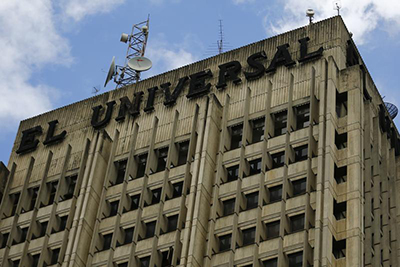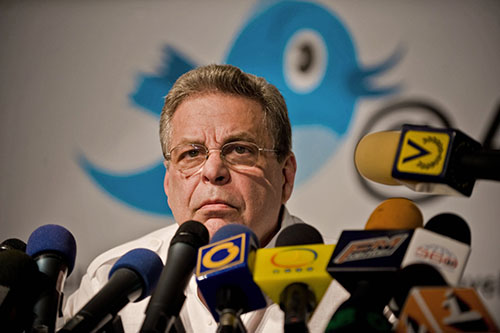
In Venezuela, online news helps journalists get their voices back
When Venezuelan President Hugo Chávez was rumored to be gravely ill four years ago, his socialist government was tightlipped about the diagnosis. Then in June 2011 a source in Havana, Cuba, where Chávez was being treated, told Nelson Bocaranda, a veteran columnist for the Caracas daily El Universal, that the president had cancer.
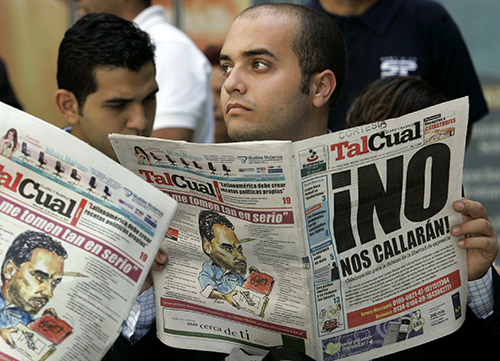
In Venezuela, Tal Cual under pressure but not defeated
Tal Cual, one of the few remaining Venezuelan newspapers critical of the government, is so shorthanded there’s often no receptionist on hand to let people in. Visitors must bang on the front door until someone in the newsroom notices. That can take a while because there are hardly any editors or journalists left.
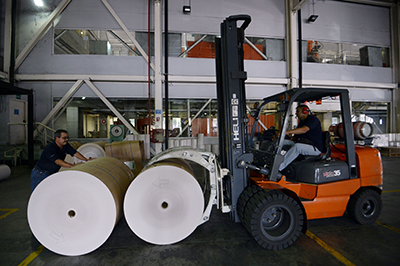
News rationed as Venezuela seeks to control newsprint imports
Venezuelan newspapers have traditionally handed out hundreds of courtesy copies in their lobbies and at hotels. But Correo del Caroní, an independent daily in the industrial city of Ciudad Guayana, treats every edition as if it were precious and now gives away just 14 copies, including one to the owner.
Slideshow: Covering protests in Venezuela
Coverage of street demonstrations is an exceptionally dangerous assignment, with journalists subject to assaults, obstruction, detention, raids, threats, censorship orders, and confiscation or destruction of equipment. This report is one in a series of three by Getty photographers who documented for CPJ their recent experiences covering protests and shared their photographs.
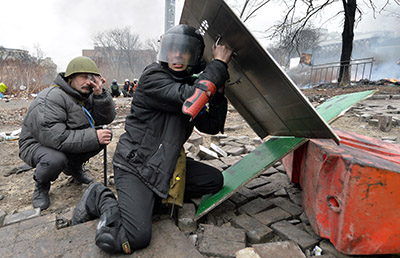
Body armor must match threat in Venezuela and Ukraine
Covering street violence is one thing. Covering gunfire is another. This week, firearms were unexpectedly introduced into ongoing clashes between protesters and police in two parts of the world, raising the threat level faced by journalists trying to cover events.
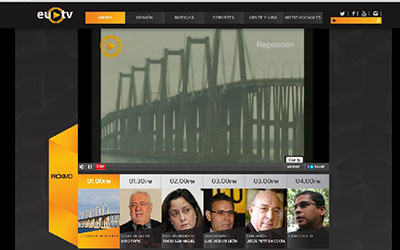
Web-based TV opens space for critical voices in Venezuela
With its low budget décor and grainy images, EUTV has the look and feel of small-town community television. But the Web-based TV station that went live on November 18 has much larger ambitions: It intends to be the primary source for Venezuelans who covet independent television news.
Venezuela forces ISPs to police Internet
The concept of network neutrality holds that all Internet traffic should be treated equal and that Internet Service Providers, or ISPs, should serve as free-flowing gateways for information rather than as filters. But in politically polarized Venezuela, neutrality is an increasingly rare commodity and now ISPs are feeling the heat.
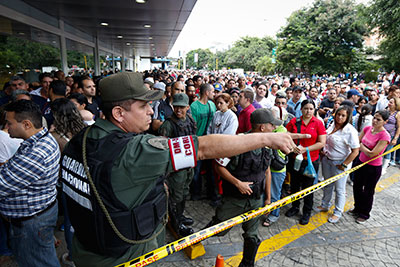
Venezuela tries to suppress reports of economic upheaval
Amid skyrocketing inflation and shortages of basic goods, Venezuelan authorities claim that an “economic war” is being waged against the socialist government of President Nicolás Maduro. The government is striking back by forcing stores to discount prices, by arresting business owners accused of hoarding–and by targeting journalists trying to cover the grim economic news.
